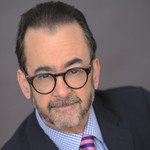When does opinion become propaganda?

If there is something that the American government or the European government is doing wrong, that’s not necessarily Russian propaganda. That is called critique; that is called analysis, says legal and media analyst Lionel.
The Washington Post is distancing itself from a group it used as a source for an article on "fake news" and so-called “Russian propaganda”.
The newspaper's responding to widespread criticism that the report it based the article on was flawed and that the group behind it should not be trusted.
In the initial article, the Washington Post effectively accused 200 US news sites of being 'routine peddlers' of Russian propaganda. It referred to a list put together by a little-known collective called 'PropOrNot' which it claims to be made up of 'independent' political analysts and computer scientists.
An editor's note later appeared above the article saying that the paper can't vouch for the group.
Some journalists launched their own investigations. And, as it turned out, simply having gone against the narratives of the mainstream US media was enough to have landed some outlets on the Russian propaganda blacklist.
RT: What do you make of the Washington Post's alleged "investigation" into the Russian propaganda?
Lionel: One of the things that I find utterly fascinating is how we are talking now in the US about either ‘fake news’ and this is dovetailing into this idea of propaganda, specifically Russian propaganda. And in neither of those two cases has anyone ever defined what fake news is and what propaganda is. But we are talking about it all the time. And we are not able to understand when does someone’s opinion that doesn’t comport or comply with your opinion, when does that become ‘fake’ versus ‘opposing?’ And when does it become propaganda versus information or data that does not jibe with your world view? Nobody can answer that question.
RT: The news outlet cited PropOrNot, a group supposedly consisting of the independent political analysts. Now it seems like the Washington Post is back-pedaling on its accusations by saying it's not vouching for the information and the group used for the research. What's your take on it?
Lionel: The Washington Post – I thought I’ve seen it all. When they have a group that they are unable to vet, verify, authenticate, to use them as a valid source to, I guess provide the proposition that certain news sites are either Russian propaganda and/or false news. To not even vet these people? What if I decide tomorrow I am going to start my own website and I am going to have my own 100 list of websites that are Chinese propaganda, Italian propaganda. That is it – nobody asks me “Who are you? What is the basis for you making this proclamation?” And to think that the Washington Post. Do you have any idea how heralded this newspaper is in modern history? Washington Post: Woodward and Bernstein, Watergate, this was between the New Times and Washington Post – they were neck and neck for what many people considered the finest journalism examples bar none. And they’ve been relegated to this? I am shocked.
At the top of this one particular article when they list this one group PropOrNot, which they later distanced themselves from any kind of authentication of this group - they keep the article up that has as its basis this group which the Washington Post just said they have no way to verify.
Disgraced ex-NBC ‘fake news’ journalist Brian Williams on crusade against false reporting https://t.co/2ekhaW3LIJ
— RT (@RT_com) December 9, 2016
RT: Is it some sort of the damage control we are now witnessing?
Lionel: Damage control? Let’s put it this way: it is once the patient has died, it is a little tough to do damage control. This is embarrassing. The only damage control they could have done is to retract the story. Wipe their hands of this group, remove it. Don’t repeat it. Don’t run the story with a disclaimer at the top of it. If the story is not valid, If the sources that you have cited are not to be trusted, if there is no way for you to verify their authenticity or their ability to make statements as to what is or isn’t propaganda, then retract the article. Why are we still reading this with this little proviso at the top, this little warning? It is mind-boggling.
RT: Another news outlet, Voice of America, has published an interview with the Senior Director for Human Rights of McCain Institute, David J. Kramer. In it, he states that "Representatives of RT in the US are trying to become part of the dialogue between journalists and the press-secretaries of the agencies of the United States government. They are trying to sow the seeds of doubt in the minds of the people: they claim the government is not telling the truth, and that there's a different truth." He also vows to draw a line between the "true journalists" and the ones from RT. What are your thoughts?
Lionel: Isn’t that what journalism does? Isn’t that in essence what everybody does?... It is incumbent upon every country, every ideology, every politician, every religious leader to change and affect, alter the way the world thinks. Every country wants to expand and spread its word. That is what everybody does… Tell me when opinion becomes propaganda… But what is this ‘Russian propaganda?’ There are two things here. Russian propaganda is “We are Russia. We are great.” Or, here is something that the American government or the European government is doing wrong. That’s not necessarily Russian propaganda. That is called critique; that is called analysis. And what they are often times confusing is somebody who finds fault or somebody who critics something that is either America or Europe or anybody is doing with Russian propaganda…
The statements, views and opinions expressed in this column are solely those of the author and do not necessarily represent those of RT.














